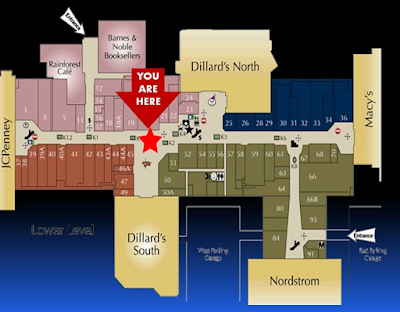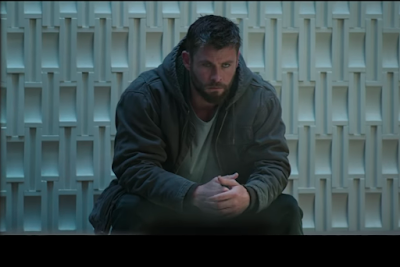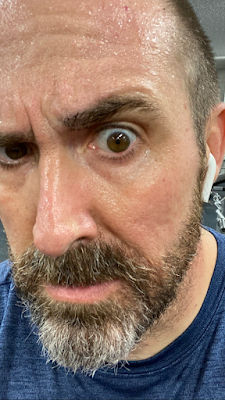After Violence Dynamics in November, I was full of go get 'em. Chasing the idea of "best self". Another example of the myth of the static state. "Best self" takes work to achieve and maintain. Just because you were at your best yesterday doesn't mean you will be today. In blogs to follow I will discuss a hierarchy of resiliency, with "Hustle" being at the top. Hustle is an expression of best self. When you have the time, energy, band width for passion projects. In November I was full of go get 'em, but life happens. Every time I was hustling, I couldn't concentrate on the passion project. I had something in my head and I couldn't proceed until I got it out. So I forced it out, part of that process is sharing it here.
To process what was in my head in a way that other people could understand, and therefore be useful, I used a SMEAC.
SMEAC is an acronym used for tactical planning.

Situation:
The last few years have placed additional stressors on everyone. Additionally, this may be the most stressful time to be a law enforcement officer in American history. On top of that, there are even more additional stressors on tactical operators.
In the last two years:
Name Redacted - Team Leader, Sniper - break down - PTSD retirement from Law Enforcement
Name Redacted - Team Leader, Energetic Breacher - break down - SUICIDE
Name Redacted - Fire Captain - Tactical Medic - break down - PTSD retirement from public service
Name Redacted - Team Leader, Sniper, K9 handler - break down - Leave of absence, likely PTSD retirement from Law Enforcement
I have a ton in common with these guys - they are me - they are my tribe. Why did they “break”? Why haven’t I? Is my turn around the corner? Am I a ticking time bomb? Can I prevent it? If so can I help others prevent it?
Every time I was hustling, I couldn't concentrate on the passion project. I had something in my head- is my turn around the corner? Am I a ticking time bomb? Can I prevent it? If so can I help others prevent it?
Mission:
To increase operator’s resiliency, helping them mitigate and manage stress and its effect on their mental and physical health. To enhance an operator's ability to recover from traumatic events.
On top of my own life experience and training, recently (after the suicide) I have been seeking out additional education and resources. I was done crying and I needed something to attack. I needed a mission. I needed to put this angry somewhere. I needed to convert that energy into something positive.
I was fortunate to attend the following classes at the special operations training association conference this spring.
Mental Health Resiliency
Participants will learn about the different forms that trauma can take from the typical big "T" events to others that usually go unnoticed. This presentation will walk attendees through the different presentations of trauma and understand antecedents to trauma while getting a better understanding of personal vulnerabilities. The presenter will then move into how to overcome the effects of trauma and describe resiliency factors that prevent burn out, compassion fatigue, and longer lasting effects of the hazards of the profession.
Speaker
Hector Matascastillo - South Metro SWAT
Owning Your Wellness: Nutrition, Sleep, Exercise, Community
It's up to each of us to own our own wellness. Life, both work and home, will throw things at us and disrupt our best-laid plans. This session will talk about practical tips and strategies to make sure we are focused on the wellness things that matter most.
Speaker
Paul Nystrom - Provicta, MD
After those classes I started transitioning my thoughts into a plan. There are direct correlations to preparing for physical conflict (which in itself can be traumatic), and preparing for / recovering from trauma.
Physical Conflict -
You do not rise to the occasion, you drop to your level of training…in an adrenalized body.
So, you work to raise your level of training, and learn to mitigate the negative effects of adrenaline.
Trauma -
Traumatic events (Big T) knock you to your baseline resiliency…while you continue to deal with everyday stressors (Little T).
Baseline resiliency can be trained.
So, you train to raise your baseline level of resiliency, and learn to mitigate the effects of trauma
Traumatic events may knock us off our best selves. However, the higher our baseline resiliency is the faster we can recover.
How do we raise our baseline resiliency?
It became clear that the best practices for training your resiliency include:
- Regular Exercise
- Solid Nutrition
- Sleep
- Mindfulness
- Meaningful positive relationships
Outside of any conspiracy theory or political debate take a look to the response to Covid and its effect on mental health.
Regular Exercise
Close the gyms
Close the Dojos
Close the parks
Solid Nutrition
Limit store hours
Supply chain issues
Junk food delivered to your house
Meaningful positive relationships
Can't meet face to face
Can't travel
Cover your face
Can't see loved ones in hospital
Can't have a funeral
Being forced to follow arbitrary and capricious rules that have no basis in logic and achieve nothing.
Is there any wonder why the last few years have placed additional stressors on everyone?
I needed something to attack. I needed a mission.
The mission is to encourage Operators to engage in these resiliency enhancing activities on a regular and consistent basis and have an accountability process for training your resiliency. It is my hope that through this accountability process regular face to face human interaction will be increased. Conversations will organically occur. If / when these conversations transition to something like bro, I am not good - I want the Operators to have the skills to transition that conversation directly to counseling from a trusted source.
Execution:
TYR (Train Your Resiliency)
TYR phases
Phase 0 - Baseline 2 weeks
Sleep
Counseling
Mindfulness
Time Management
Preparation for Phase 1
Have participants examine their baseline resiliency. Destigmatize counseling by encouraging participants to seek out treatment (lead by example - my first appointment is in June).
Establish the foundation of a resilience hierarchy. Get enough sleep. Take a few minutes every day to quiet your mind, and shut out external stimulus.
Fill out physical goals worksheets and develop an action plan to get there.
Phase 1 - Regular Exercise 6 weeks
Once that action plan is developed - there must be a method of accountability. It is easy to quit if no one is watching.
Participants owe their peers, the old gods, the team at least three workouts per week. Proven with a picture.
There is a reason you have all seen my ridiculous post workout selfies.
Phase 2 - Sound Nutrition 6 weeks
Phase 3 - Rule of 3 6 weeks
Phase 4 - Hustle
Administration and Logistics:
Admin (Who)
Volunteers for Beta testing (to start)
Ramsey County SWAT (Next after Beta tests)
Logistics (How)
Daily / weekly check ins (communication) documenting accomplishment of resiliency strengthening activities
Command and Communications:
Command
As Executive Officer I will run this program
Communications:
Each Stick will have a chat group. Operators will provide proof of progress to these groups. Team leaders will share with me.
Beta test participants will need an accountability buddy and establish communication protocols with them.
On Monday I started Beta testing phase 0
It feels good to have this out of my head and into the world. The result as you can see is I can hustle (this blog is the result)
More to follow - The Budo Blog will return with "Hustle"
Train hard, train smart, be safe








